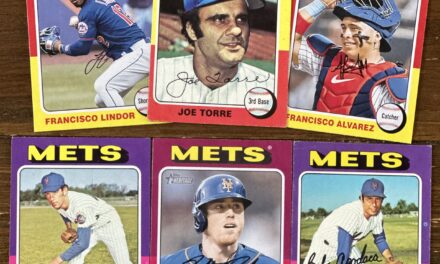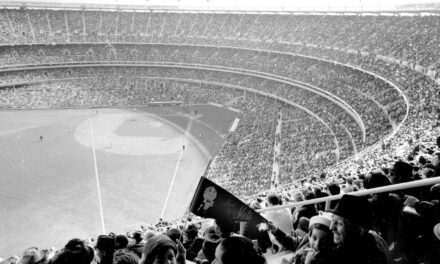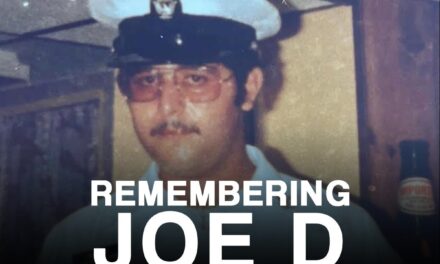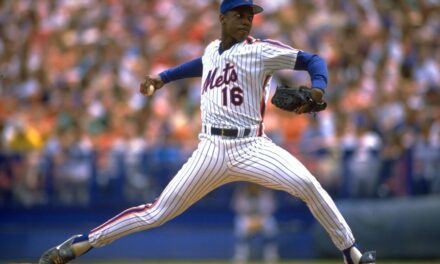
As the calendar turns to 2019, much will be written about the 1969 World Champion New York Mets as we mark the 50th anniversary of what some still call one of the greatest miracles in baseball history.
The Miracle Mets were only playing in their eighth year of existence and yet defeated the heavily favored Baltimore Orioles in the World Series four games to one. Mets fans fondly remember the names from that glorious team: Tom Seaver, Cleon Jones, Tommie Agee, Donn Clendenon among many others.
A name that may not be as familiar, but may be as important is Johnny Murphy, the general manager of the Miracle Mets. 51 years ago today, Murphy was hired by New York for their front office and help stabilize a hodge-podge team known mostly for losing and helped transform them into World Champions.
Johnny Murphy was born on July 14, 1908. He played his professional ball with the New York Yankees, his first full season in 1934. Although he came up as a starting pitcher, he is best known for being one of baseball’s first specialty relievers. He was known as the “fireman” because he would usually enter games under the most trying of circumstances such as bases loaded or the opposing team’s best hitter at the plate. His job was to put out the fire and most often he did just that.
Murphy played 12 years for the Yankees. In his first year, he started 20 games, but for the remaining 11 years, he would only start 20 more games. Although ‘saves’ were not recognized as an official statistic when he pitched, he nevertheless led the AL in saves four times. His overall record was 93-53 with a 3.50 ERA. He led the AL in wins by a relief pitcher seven times and was a three-time All-Star. Most impressively, he was on seven World Series winning teams, the most of any pitcher in history. Murphy finished his playing career in 1947 for the Boston Red Sox.
After his playing days were over, Murphy remained with the Red Sox as a scout before advancing to the front office. For nearly 15 years, he was the Director of Minor League Operations for Boston before he was dismissed by Red Sox owner Tom Yawkey following the 1960 season. In 1961, he joined former Yankees GM George Weiss in the front office of New York’s new NL expansion team—the New York Mets.
Murphy started as chief scout in 1961, a full year before the Mets would start play. From scouting, he moved into the front office in 1964 and on December 27, 1967, he became the third general manager of the Mets replacing Bing Devine.
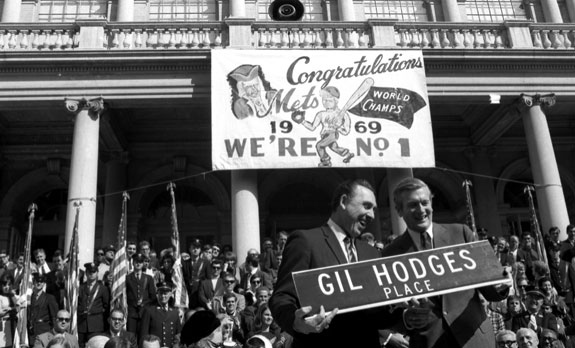
One of the first accomplishments of the Murphy era was the hiring of Gil Hodges as the new manager (Murphy handled negotiations before being officially named GM). Hodges was part of the Washington Senators’ organization but was obtained in a trade in the late fall of 1967. With the duo of Hodges and Murphy in place, spring training in 1968 was vastly different than in the past.
In the very early years of the Mets, it was common for players to shuffle back and forth between the minors to the big club. This stopped with the new regime who also made practices more regimented and organized than in prior years.
Also, coincident with Murphy’s promotion was the flourishing of new pitching talent for the Mets such as Tom Seaver, Tug McGraw, Nolan Ryan and Jerry Koosman. These hurlers improved the Mets and help them win the NL East in 1969 before sweeping the Atlanta Braves in the NLCS before stunning the Orioles.
Unfortunately, Murphy was not able to fully enjoy the fruits of his labor as a scant three months after the championship, he had a heart attack. He died on January 14, 1970 at age 61. He was succeeded by Bob Scheffing. In 1983, Murphy was inducted into the New York Mets Hall of Fame. The Mets also honor him by giving out the Johnny Murphy Award to the top rookie in spring training.
Johnny Murphy’s contribution to the Mets was short-lived but important. He changed the culture of the young team and set precedents that other executives would follow. He was fortunate that he was GM during the rise of many of the Mets’ greatest pitchers but was also responsible for procuring other young talent to complement the pitching.
As stated, 2019 will mark the 50th anniversary of the Miracle Mets. It is probably safe to say this miracle probably does not happen without Johnny Murphy.



